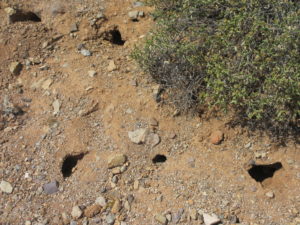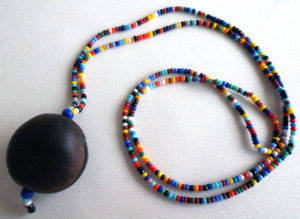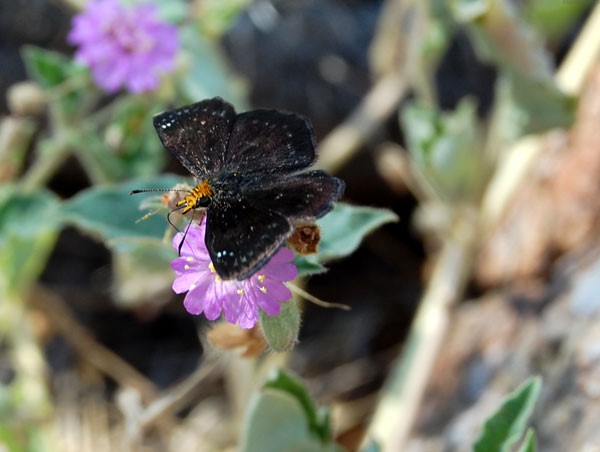Yo’ohoara (also called encanto) refers to sacred and magical places in the Hiaki lore. These are usually hills in inconspicuous locations that look like they have never before been touched by mankind. If a person has a desire to become more skilled at something, such as becoming a better musician or artist, he or she can travel to one of these places and ask for their wish to be granted.
First, you must be completely alone and must truly believe in the power of the yo’ohoara. None of this will work if you have just the slightest shred of doubt. You should go to the yo’ohoara sometime in the morning, sit under a mesquite tree, and wait for a door to appear at exactly high noon. If the door appears to you and you are truly sincere, then it will open and you will see the entrance to the spirit world. A creature with the upper body of a man and the lower body of a billy goat (chiva’ato) will come out and ask you what you seek. This creature is the devil himself. You should only tell him what you want if it is something you truly desire and are determined to achieve, because if you are insincere and you go through the door with him, you can never come out. But, before he lets you in, he will test you by hopping on you, touching you all over, and rubbing himself on you. If you are not disturbed to the point of leaving, then he will allow you entrance.
Once you have travelled through the door, you must continue to follow the devil and look straight ahead. To one side of you, there will be a group of masterful musicians playing the most wonderful music you’ve ever heard. To the other side will be the most beautiful women wearing revealing clothing. Both the musicians and the women will be calling your name and beckoning you to come to them; the men will say they’ll teach you to play like them and the women will tell you they want to spend time with you. However, you must not give in to temptation, because if you so much as turn your head from the devil’s back and look at them, you will never be allowed to leave the spirit world. Among the other things you will see while following the devil are a great many people who could not resist temptation and are forever trapped.
If you prove to pass this test, then you must speak with the devil once more. The conversation you have with him will lead to one of two outcomes, if you’re smart. If you changed your mind and you don’t wish to strike a deal with the devil, then you can explain that there is nothing you desire from him, and he will escort you out. But, upon leaving, you will forget all of the events that transpired. If you still desire the skill you sought coming into the spirit world, then you must tell him. He will grant you what you seek, but in exchange for your soul. He’ll tell you that he will come to you when it is time, but if you are clever, you can tell him to come for you when all of the fingers on your hands are the same length as your middle fingers. Not realizing that the fingers on human hands never grow to be all the same length, he will agree to your condition. This will grant your soul the protection of never being claimed by the devil, but for the rest of your life you will feel a tugging on your fingers.
If you, like many Hiakis who have entered the yo’ohoara seek to be a better violinist, then the devil will hand you a violin of your own, but the bow will be a snake. The snake will wrap itself around your arm and pass over the strings just like a regular bow, but if you make a mistake while playing, it will tug on you and correct you.
If, one day, you decide to visit a yo’ohoara for whatever reason, be careful not to linger around it for too long, because the spirit Yoeta is rumored to reside by such places.




